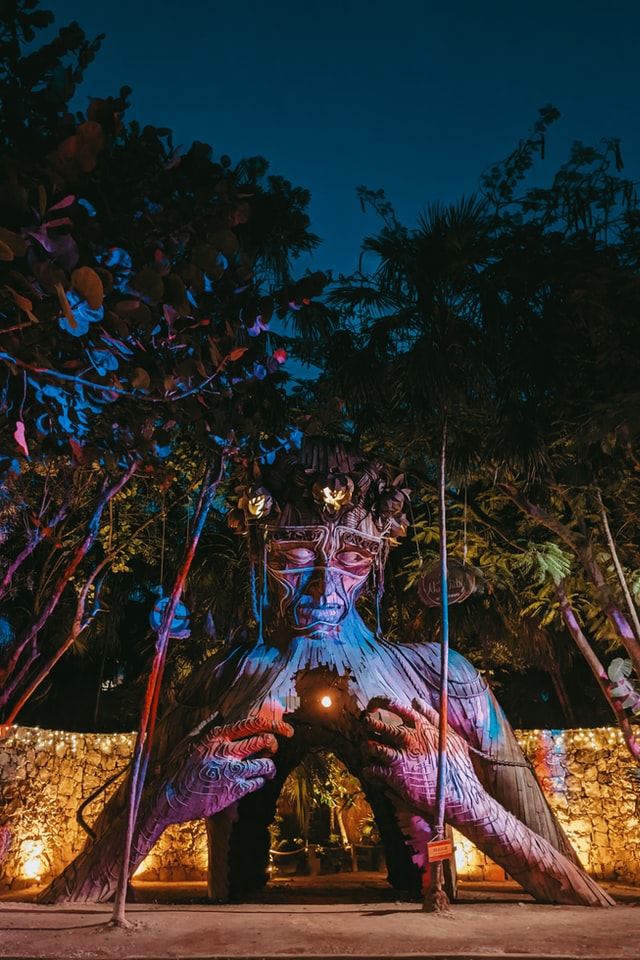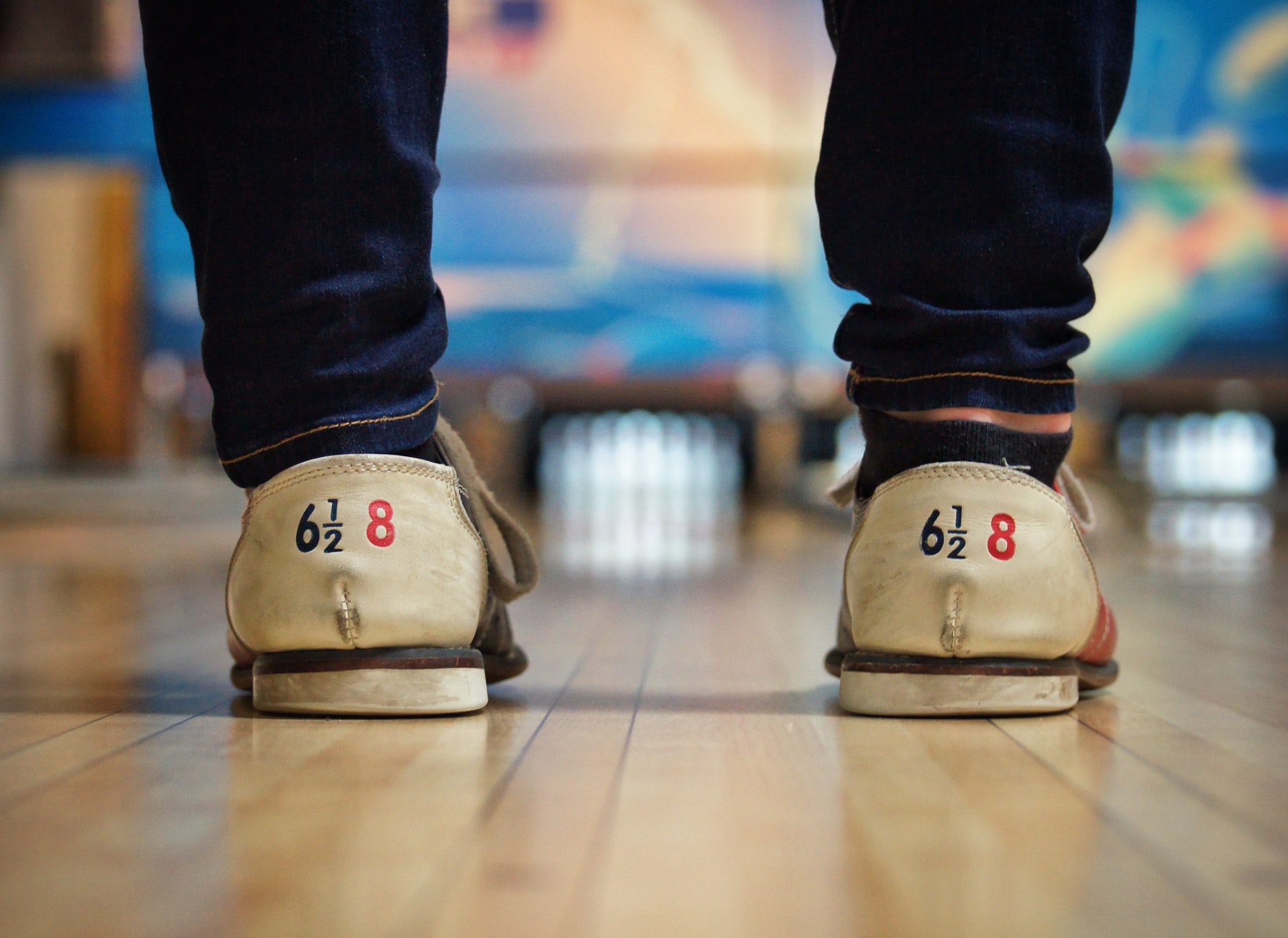Three hundred miles south of Caracas, high in the mountains above the Rio Tomasi, the rain began. Gentle at first, touching the tops of the highest trees. After eight months of drought, these trees inhaled the memory of water. Limbs that drooped began to lift and spread. Brown and brittle grasses awoke, catching the rain, funneling the droplets to their roots.
The drought had transformed the land. Where the river’s width and depth had warranted a ferry crossing, a child could now jump from one side to the other. Above this, an empty reservoir let the dwindling stream pass unchecked through an open outlet.
In the lower valley, where the empty riverbed passed through parched farmland and vacant villages, twenty-two prisoners languished in a sweltering courtyard. The sixteen-foot cinderblock wall defined their horizon. And just above the wall, between the two strands of barbed wire, sixty miles to the south, the prisoners observed giant clouds rising in the mountains.
“Is this the storm, Viejo?” one prisoner asked.
Viejo closed his eyes and inhaled through his mouth, tasting the air.
“Is this the one?” the prisoner asked again.
The old man offered an almost imperceptible nod. “We must hope,” he said. And when he opened his eyes, he seemed disoriented, as though he had just arrived too quickly from another place.
“Hey, Viejo. Will I really need to swim?” another prisoner asked while making paddling motions with his arms, as though the courtyard were filled with water. He laughed at the old man, but the other prisoners didn’t laugh.
Viejo smiled at the man’s mocking. “Gordo, how long have you been in Santa Marta?”
“Seven years, Viejo. And a storm has never filled that barrel.” With his chin he pointed to the salvaged wine barrel next to the prisoners’ quarters. A black tin pipe ran from the rain gutter into the barrel. “It won’t hold water even though we have rain for a week.”
Light shown through the empty barrel where the staves had shrunk and separated. An iron band had slipped off and lay on the dry ground. “It is dry,” Viejo said. “Too dry today. But soon that barrel will overflow and you will wish you had learned to swim.”
“You’re a strange man,” Gordo said. “You’ve been in Santa Marta for a month and you’ll have us believe we will swim away from here. There’s not even a barrel of water to bathe in and you teach these men to swim.” Gordo kicked the ground and a dust cloud filled the space between himself and Viejo. “You’re crazy. All of you. The guards only give us water to drink and you think you’ll swim away from Santa Marta.”
“Don’t worry, Gordo,” another prisoner said. “The fat fish don’t need to swim. They float. We’ll hang on to you when the water comes.”
Gordo lifted up his stained and faded tee shirt. His belly glistened in the noonday sun. He laughed while rubbing the enormous bulge. “This is my insurance policy,” he said. “Just in case Viejo is right.”
The blue sky above the courtyard suggested no hint of rain. Not a single cloud offered shade. But to the south, billowing clouds pushed higher and now flattened against an invisible ceiling.
Viejo squinted as he looked across the wall. The other prisoners turned their gaze on the clouds, and especially on one that rose higher than the others. One prisoner pointed to it. “That one,” he said, “I have seen these before. They are like a great anvil.”
Viejo squinted harder. “I think you are right, Chino. And I think the blacksmith is about to drop his hammer.”
Chino slapped Gordo on the back. “You better eat a good dinner tonight. You may need that insurance policy in the morning.”
Gordo climbed onto the table. “A ride to freedom,” he shouted. “For any fool who shares his dessert with me tonight. Freedom. Tomorrow morning. Prepare for the ride.”
All the prisoners laughed this time, including Viejo. The one guard—in the stilt tower beyond the wall—yelled at them. “Shutchyermouths, you dogs.”
“You’ll be struck by lightning,” Gordo yelled back. “Give me your dessert too, and I’ll let you live.”
Gordo’s bravado prompted more laughter. The guard aimed his rifle and fired one shot over the prisoners’ heads. The bullet ricocheted off the far wall as they ducked and scattered, still hooting and laughing.
That evening, after dinner, Chino found Viejo in the courtyard. “There’s electricity in the air,” he said to the old man. “Do you feel it?”
Viejo ran his hand over the grey hairs standing on his forearm. “I feel it. The storm is growing.”
“But not here,” Chino said. “Only to the south, and those clouds are far away.”
“And they are on our side of the mountains, which means they will fill the river that passes through Santa Marta.” Viejo leaned closer to Chino. “Listen to me. Don’t be fooled by the dry ground here. The river will grow and you will need to swim. That is our way past these walls.”
“Tonight?” Chino asked.
“Not tonight. Tomorrow night.”
The two men heard someone approaching and cut off their conversation.
“Is that you, Viejo?” Gordo called out.
“Yes. Chino and I were—”
“Let me guess. You were giving swim lessons again,” Gordo said. “And you’re excited about those clouds—about a storm so far away.”
“No swim lessons tonight,” Viejo said. “Did anyone give you dessert?”
Gordo patted his belly. “No one wants my help. You’ve taught them all too well to swim.”
“I know you don’t believe the old man,” Chino said. “But can you feel the electricity? The energy? Something is different tonight in Santa Marta.”
Gordo looked around the courtyard. Cigarette ends glowed orange where other prisoners gathered. “I feel it. Something is different,” Gordo said. “Perhaps it’s the fear this old man puts into our hearts with his talk of floods.”
“Not fear, Gordo. But hope.” Viejo said. “Two months ago, before I was sent here for protesting the dam, I spoke with an engineer. We stood between the old dam and where the new one would be built. I asked him why the government would not build a passage for the fish.”
“A passage for the fish?” Gordo asked.
“Yes. The engineer called it a fish ladder.”
“A ladder for fish.” Gordo said flatly.
“Not a ladder for climbing over this wall,” Viejo said. “But a kind of structure to let the fish swim past the dam.”
“A big slide.” Gordo said.
“Yes. Like that. But not too steep, so the fish can swim up and over the dam. A passage.”
“Why do you care where the fish swim?” Gordo asked.
“With the old dam, fish could go only downriver. Never up. In my lifetime, all the fish have disappeared from above the dam.”
“And this is why you are in Santa Marta?” Gordo asked. “For a fish?”
“Yes. For a fish. For many fish. For a way of life. I wrote letters to Caracas, to the legislature, even to President Maduro.”
Gordo shook his head. He put his arm around Chino, who had been fascinated with the fish ladder. “That was a mistake,” Gordo said. “To disagree with Maduro in a letter, with your signature. And you know the legislature is against him.” Gordo pulled Chino closer and pushed out his chest. “Chino and I stole cattle in Brazil, to smuggle. The military detained us at the border, and confiscated our cattle. We are in Santa Marta for stealing cattle, and maybe for other crimes. But you, you are here for a fish.” Gordo patted Chino on the back. “I will leave you to your swim lessons. Good night.”
“Good night, Gordo.”
Gordo crossed the courtyard and joined the other prisoners playing cards under a kerosene lantern. Viejo and Chino spoke long into the night, walking along the wall. They guessed at the strength of the wall and at the height the river might reach.
Nine weeks earlier.
Two men stood in the riverbed of the Rio Tomasi. One, an engineer for the new dam. The other, a villager that fished the lower reaches of the river. An old man. He had written letters to regulators, asking them to consider the fishery, to consider building a fish passage at the new dam. And though he had never threatened or been undignified in his language, the regulators felt the firm tenor of his letters—an inexhaustible resolve—one that bordered on anger born of injustice, one that wouldn’t be diminished with payoffs, one that peasants had wielded in revolutions. They worried that the old villager—whether living or martyred—would recruit others. They feared the legislature would give him an audience. But most of all, they knew the contractor would issue no more bribes if the project stalled.
The two men stood in the riverbed and talked of fish and the drought. The engineer humored the old villager. He didn’t know this was the same man who had agitated village and town councils for a hundred miles down the river.
“Such a dry year,” the villager said, as the two of them looked upstream at the vestiges of the old dam.
The engineer folded his arms and leaned back, looking up at the clear sky. “It’s a blessing, really,” he said. “With this drought, we don’t need a bypass pipe to carry the river through the construction site. Not that I want the drought to continue. Of course not. But it makes our work easier.”
“So you saved a lot of money?” the villager asked.
The engineer leaned forward just a little. “I thought we were talking about the weather, not boring things like money,” the engineer said, feigning mild disgust.
The villager laughed. “I suppose money is boring. But I’m a practical man, and depending on how you bid the project, I think you might save a lot of money if the weather cooperates.”
“And lose more if it doesn’t,” the engineer said. “Once we finish the first level of the new dam, it won’t matter what the weather does. We can let the river go right through the new outlets while we continue building.”
“Those outlets are for the turbines?” the villager asked.
“That’s right. This new dam will generate enough electricity for every town between here and Paraima.”
“But there are no transmission lines to Paraima. Only to Venécia. The opposite way,” the villager said. “And I understand Vensoluz intends to sell this electricity to Colombia.”
The engineer leaned back again, arms still folded. “What do I know? I’m a hydraulic engineer.”
“Perfect,” the villager said. “I have a question related to hydraulics.”
The engineer suggested they walk upriver and finish their conversation in the shade of what remained of the old dam. When the old dam stopped their progress, the two men sat and reclined against the cool concrete base.
“What’s your question, my friend?” the engineer asked, folding his arms again.
“How is it the Brazilians and Colombians build passages for fish, but we do not?”
“A fish ladder? You’re talking about money again, not hydraulics. But I’ll tell you. The crest of the new dam will be 340 feet high, seventy feet higher than the old dam,” the engineer said, patting the concrete at his back. “The cost is prohibitive—so I am told. For every foot that a fish must swim straight up, it must also swim ten feet straight ahead.”
“So the problem is space?” the villager asked.
“Space, yes. But financing is the real problem.”
“How much?”
“Every foot adds eighty-five thousand Yankee dollars,” the engineer said. He pulled his cell phone from his shirt pocket and tapped at the screen. “About twenty-nine million dollars total.”
“That’s 290 million new bolivars,” the villager said.
Both men sat quietly—the engineer hoping the villager would grasp the scale of the project, and the villager dividing 290 million bolivars by his daily revenue from fish sales.
“I have one more question,” the villager said.
“Go ahead.”
“Is there another way to let fish above the new dam? You know, a less expensive way?”
The engineer unfolded his arms and shifted on the ground, stretching his back. He turned and faced the villager. “Yes. But there is no guarantee it will happen. I have witnessed this phenomenon only once, many years ago. It was…how shall I say it?…a miracle of nature.”
The villager turned and faced the engineer. “What was this miracle? How did it happen?”
The engineer slipped his cell phone into his shirt pocket. He began:
I was working in Argentina. We had just dismantled an old dam, much like this one. There were no provisions for a fish ladder there either. But the river carried many fish. Different fish than here. Trout and salmon. Beautiful fish. Green and blue and red. They couldn’t pass the old dam and they would never pass the new dam. They spawned in the lower river.
When the old dam had been cut down, the river spilled over the low crest into a pool of clear water. I looked into that pool when I took flow measurements. There were no fish there. Just clear water and the colorful rocks.
The old dam had stood for ninety years. Only a few fish survived in the headwaters. They dwindled and were decimated by disease. You know? Like a village that doesn’t marry with another village.
The old man nodded.
One day, while I was measuring flows on the crest, I looked into the pool and thought it such a shame that the trout and salmon now had only to jump three feet to get above the temporary crest. But they had learned for ninety years that they could not pass and so they remained in the lower river. The river was open like this for several weeks.
That night I had a dream. I walked along the river where the fish were preparing to spawn—far below the project. In my dream, I walked upriver, waving my arms and calling to the fish, encouraging them to swim farther. It was night in my dream and I wasn’t afraid. I went into the freezing water and swam with them. Bumping against them. Jockeying with them. I swung my arms over my head and slapped the water, and pulled my cupped hands down toward my waist. The current was swift, but I was strong enough to overcome it. I swam until I arrived at the pool. There I could hear the roar of the water coming over the crest, crashing, plunging. Thousands of fish had come to the pool. They swirled in a giant circle, faster and faster, and they began jumping into the waterfall. Their tails thrashed at the air, and the water knocked them back into the pool.
I leaped with them into the waterfall. I fell back again and again. Then, one by one, the fish began making their way above the crest. In my dream I felt heavy. The crest was still too high for me. Nearly all the fish were gone and I wanted to follow them into the headwaters. On my last try, I thrashed with my legs and I swung my arms around and around, pulling at the water. But then I fell back into the pool and awoke.
Both men were quiet again. The engineer became pensive, lost in his own memory.
Water trickled over the crest and gurgled in the pool. The villager followed the trickle down the concrete face. Algae, bright green and slick, had spread in a narrow streak where the water ran. His eyes settled on the pool, no larger than a washbasin. Bellbirds called to each other in the trees beyond the riverbed.
After the long silence, the villager spoke first. “This is a beautiful dream, and maybe the beginning of a miracle, but still only a dream.”
“Yes. The beginning,” the engineer said. He appeared disoriented for a moment, as though still caught in the dream. He continued:
A storm arrived that night. A thunderstorm. As wide at a city. The storm started high in the mountains and then moved into the valley—the reverse of typical storms. The next morning, when I went to measure flows, the river was rising, but only a little. I measured the flows and went to the lower project. Then, in the late afternoon, the flows increased rapidly. I worried they would overwhelm the outlets, so I warned the contractor to remove his equipment from the site.
I walked upriver to the old dam, and as I walked I noticed fish in the rising river—where I hadn’t seen them before. By the time I arrived at the old dam, the downstream pool was deeper and the water surface was nearly to the crest. The fish were not yet jumping as they had been in my dream. But they began to swim in a great circle, swirling, faster and faster. Within a few minutes the water level had risen to the crest itself. The fish began to break away from the circle, and one by one they swam up and over the crest. Hundreds at first. But more arrived. I climbed up the hillside and watched them into the early evening. The water grew dirty from so much rain in the mountains. But the fish were so numerous I could see their backs on the surface. Green and blue and red. Fish that would not spawn for another two months joined in the escape. Yes! An escape. These fish had been held prisoner for ninety years below that wall of concrete.
After sunset, after I could no longer see the river, I went back to my truck and found a flashlight. At the river again, under the narrow beam of my flashlight, I saw flashes of green and blue and red passing upstream. At midnight I left to get some sleep.
The next morning, just as the sun was coming up, I arrived at the site and saw that the river had gone down. The surface of the pool was too far below the crest; the fish no longer had a way to pass above the old dam. Over the next month other storms arrived in the mountains, but these were typical storms, always moving from the valley into the mountains, and so the flows were not so large—and never again large enough for the salmon and trout to pass into the headwaters.
A year after the project was finished, I visited the site to conduct a final inspection. I went on a Friday. My family was with me this time—my wife and two sons and daughter. On Saturday, we drove high into the valley, above the cattle ranches, and made a picnic next to a small stream. Our daughter—she was five years old then—she waded into the stream and laughed as she tried to catch the fish with her hands. Green and blue and red. So many fish swam there. It was this way now in all the little streams high in those valleys.
Santa Marta
The sun rose to another clear day. Hot. Blue sky. Except to the south. The anvil-shaped cloud that had menaced the mountains the day before had collapsed into itself during the night, and a new one formed on this morning. First puffy and light. Gentle looking. But by noon, the top had flattened and the sides grew dark. A double-headed anvil.
“Another storm, Viejo,” Chino said.
“I’ve been watching it since sunrise. This one is bigger. Ten times, maybe,” Viejo said, not moving his eyes off the southern horizon. “Are you ready to swim, Chino?”
Chino looked around the courtyard. “Some of the others think you are giving us false hope. They have been talking with Gordo.”
“What do you think, Chino?”
“What do you mean?”
“Do you think there is harm in having hope?” Viejo asked. “Do you think it is dangerous to hope?”
“Perhaps. Yes. Some of these men have been here fifteen years,” Chino said. “Some have watched their friends die trying to escape.”
“Perhaps? Yes?” Viejo said, repeating Chino’s words. “It is either perhaps or it is yes, but not both.”
Chino shrugged, not committing to an answer.
“Chino, I want you to live through this escape,” Viejo said, facing his friend and grasping his shoulders. “It is dangerous to hope. Hope is what drives you into the unknown, into the dark, into the water, into newness and vitality. Hope is almost the most dangerous thing on the earth.”
“Almost?” Chino said.
“Yes. Almost. Hope drives us to wake up in the morning, to watch for the sunrise, to anticipate the harvest of corn or fish. But there is more than hope. Something more dangerous. Something more powerful.”
Viejo stopped to let Chino think for a moment, to let him wonder, to let him clear a piece of ground where the next words could be planted.
“Chino,” the old man said, pausing again to let the gravity of his words weigh on his friend. “Chino, you have hope. I have hope. Many in this prison have hope. I believe even Gordo has hope. But we must have faith. We feel hope when we cast our net into the river. But faith is the act of casting. It is faith that brings the fish into our arms. We feel hope when we hold a bag of corn seed at the beginning of the rainy season. But faith is the act of sowing. There is no middle ground with faith. Faith is not only a place of feeling, but a place of doing.
“I have taught these men to swim. All but one. To learn to swim is to ask the water to arrive. Our practice is a petition to the river, to the rain.” Viejo pointed to the enormous cloud growing on the southern horizon. “We have asked that cloud to fulfill a promise, to let us swim out of here.”
Chino looked above the wall. The highest strand of barbed wire cut the cloud in half. Even as he watched the cloud, it began to collapse into itself. Lighting flashed on the concave sides.
“I have hope, Viejo,” he said. “And faith, I think.”
Viejo nodded slowly and smiled. “You have faith, Chino. When you swim, that is faith.”
– – –
That same afternoon, as the engineer was packing up his equipment at the old dam, he heard splashing below the crest. He went to inspect the noise, to see if he might find an otter or paca at the little pool of water. As he walked onto the crest and looked into the little pool just below him, he saw a bass swimming in the clear water. Green and gold with black bands on its sides. He looked upstream, across the crest. A paper-thin sheet of water ran across the concrete. The bass couldn’t have come from there. He looked downstream, but only saw other small pools, scattered and separated.
A gust of wind came from the south, and with it the smell of earth and rain. He walked back across the crest, toward the temporary access road. As he put his equipment in the bed of the truck, he heard a rumbling sound. Not as loud as thunder. Something like a locomotive in the distance. He went to the edge of the road and looked down onto the crest of the dismantled dam—now running water knee-deep. The downstream pool had grown to the size of a house, and began spilling into the dry riverbed. Where he had seen one bass, there were now a dozen. The downstream pool rose to the crest and the river grew as wide as a highway. More bass swam in the pool. Other fish arrived from below. He started his truck and drove to the lower site, to verify the outlets were clear of debris, and to make sure the contractor had removed equipment from the riverbed.
– – –
Just after sunset, the rain arrived at Santa Marta. The storm that had started in the mountains now moved across the valley. Giant raindrops pelted the dry earth, first sending little dust clouds into the air. But as the rain fell harder, the dust in the courtyard settled and the ground turned to mud.
The prisoners gathered under the overhanging corrugated-steel roof that extended from their quarters. The downspout shook and water began pouring into the old wine barrel. Water spurted from between the loose staves. One of the prisoners lifted the iron band and pushed the staves into place. Gordo stood close to the barrel and watched the water rise. He pulled off his tee shirt and went into the downpour, arms extended to the sky.
The men had to shout over the noise of the rain on the steel roof. Gordo yelled to the others. “Come out and have a bath. Come out. Come out.” He retrieved a bottle from inside his pants, and took a long draft of the smuggled sugarcane whiskey. “Come out and swim, you fishes. Swim, Viejo.”
He walked to the far side of the courtyard and shouted at the guard. “We are going to swim away tonight, you fool. Swim. In Santa Marta.” But the rain hammered on the roof of the guard tower so loudly that the guard heard nothing else and only saw a drunken prisoner displaying his contraband.
Viejo gathered the other men—still twenty strong—and lined them up under the overhanging roof. “Remember to swing your arms,” he shouted over the deafening rain. The old man swung one arm and then the other, showing the men to cup their hands on the down stroke. “Remember to cup your hands. Swing your arms out of the water behind you.”
Chino and another prisoner walked along the line of men, helping them with their form as Viejo shouted directions.
“Yes. That’s it,” Viejo encouraged the men. “And lie flat. Don’t try to stand. Keep your shoulders low in the water.”
The rain fell harder, drowning Viejo’s voice. He went to each man and shook hands, offering encouragement. Some of the men looked terrified. Others smiled and embraced Viejo. “Hope, my brother. Hope,” he shouted to each one. “All this time, we have had hope. Now we must have faith. We must swim.”
Gordo braced himself against the far wall and pressed his ear against the cinderblocks. He thought he heard thunder reverberating in the wall. Maybe something quieter than thunder—not a noise, but a movement. For the first time since Viejo’s arrival in Santa Marta, Gordo began to feel the opposite of hope.
Fear.
He dropped the empty bottle and staggered across the courtyard, slipping and falling and rising on the way. When he came into the light of the kerosene lantern, his eyes were wide with terror. White and red. Bloodshot with whiskey and panic.
“You tricked me, old man,” he wailed at Viejo. “You tricked me.”
But Viejo was busy instructing the men to brace themselves for the initial flood. He reminded them to let the courtyard fill with water, and then swim.
Gordo went from man to man, looking for Viejo. When he finally found the old man, he shared what he had discovered across the courtyard. “The wall is shaking over there,” Gordo said, pointing into the darkness. “The wall and the earth are shaking over there, but not here. Can you hear me, Viejo? There’s no flood.”
Viejo called to Chino. “The wall is going to break on that side, Chino.” He pointed in the same direction Gordo had pointed moments earlier. “Go out and see if the guard can hear you. Ask him what he can see outside the wall.”
Chino ran along the inner wall of the prisoners’ quarters and then into the courtyard, within view of the guard tower that stood outside the wall. There was no lantern burning in the tower tonight. Maybe the wind blew it out. He strained his eyes and searched for a burning cigarette. But he saw only darkness. He moved closer and shouted. No response. And then, with a mixture of joy and horror, he realized the tower was gone.
When he reached Viejo and the other men, they were clinging to columns and walls. Even Gordo stood on the table, shaking.
“Viejo,” Chino shouted. “The guard tower is gone. Washed away, I think.”
The men who heard Chino cheered at the news. Gordo now lay facedown on the table and began crying, howling. He grasped the edges of the table and prayed. Hail Mary…pray for us sinners now and at the hour of our death…
Viejo went among the men and told them to climb as the water rose, and to let go and swim only when the water was no longer rising. “Look for something that floats, but you may not find anything,” he said to each man. “When the water comes, pull off your pants, tie a knot in the legs and fill them with air, as we practiced. Put these under your arms or around your belly. If they hold air, good. If not, then swim as hard as you can. Have faith!”
Chino caught up to Viejo and told him again what he had seen. No tower. “And what about Gordo?” Chino shouted. “Do you think that table will float?”
“No. The legs are metal,” Viejo shouted. “But this afternoon I removed the bolts and I told Flaco and Pelón to each grab a plank when the water comes. The wood is heavy, but it will float, and they are the least likely to swim well.”
“But Gordo is there already.”
Viejo looked at Gordo, sprawled on the table, convulsing, praying, crying. He ran into the rain, and as he approached the table a loud thump and then a rushing sound came from across the courtyard. Viejo grabbed Gordo by the arm just as the water hit them. He held Gordo long enough to get them both to their feet. The planks separated from the metal legs, and Flaco and Pelón jumped into the rushing water. The kerosene lantern hissed and sputtered and went out. Six feet of water. The men began climbing. Water poured through the breach—ten feet deep and rising.
– – –
Every minute a hundred fish swam upriver past the foundation of the old dam. Farther downriver the fish swam past excavators and scaffolding and trucks. A dozen men shined lights into the canyon, watching the river tumble and devour their equipment. The engineer stood with them, as surprised as they were at the flood. No men were lost, but this would delay the project, and the river would run deep enough for fish to swim upriver and into the headwaters for a month.
The engineer borrowed a flashlight and climbed down the canyon wall. He stood on the scaffolding that had been bolted to the bedrock face, and shined the light across the rushing water. Many fish swam upriver. Hundreds. Thousands. Green and gold with black bands on their sides.
– – –
Viejo shouted to Gordo. “Hold on to the column and climb. Let the water lift you.”
“But I can’t swim,” Gordo cried. “I can’t swim.”
“You don’t need to,” Viejo shouted. “You’ll float. Remember? Just let yourself float.”
Viejo reassured Gordo as the water rose. He looked out across the darkness and saw Flaco and Pelón clinging to the planks. The water stopped rising within four feet of the top of the walls. Viejo ordered the men to swim for the breach. “Unless you want to stay in Santa Marta,” he offered. Viejo counted the men: eighteen holding to the columns and walls, two on the planks, and he and Gordo on their own column.
Gordo began crying again. Viejo didn’t let go of his arm. Chino and the others began moving along the wall—sometimes finding a little handhold, sometimes swimming—toward the breach.
“Gordo,” Viejo said calmly, pointing with his chin at the other men. “Gordo, those men are leaving Santa Marta. Do you wish to leave with them?”
“Yes, Viejo,” Gordo whimpered.
“Then lie flat and hold on to my belt. Only keep your head above water—just enough to breath. If you try to climb on top of me, we will both drown. Do you understand?”
“Yes, Viejo.”
The old man let go of the column and swam slowly into the courtyard. He felt Gordo’s weight come onto his belt as the frightened man also let go of the column.
“How are you doing, Gordo?”
“I’m floating, Viejo. I float very well,” Gordo said, first laughing and then crying. “I float. I float.”
The old man slowly and calmly repeated the measured strokes of a frog. Pull. Kick. Glide. Gordo alternated between laughing and crying and praying. When the two men arrived at the breach, the other men had already been swept into the current. Viejo saw their heads bobbing, arms swinging. Some had inflated their pants. He tried to count them, but they were too far away.
The two men pushed off the wall and the current quickly pulled them into an eddy. A saddled horse, dead, but not yet stiff with rigor mortis, bumped against them, rolling, pushing them under. Viejo planted his feet against the saddle and pushed hard. Gordo pulled on Viejo’s belt, and they both went under. Gordo felt Viejo go limp, and he let go of the old man’s belt.
When Gordo came to the surface, he was out of the eddy and in the current, moving quickly away from the prison walls. He flailed, and screamed for the old man. “Viejo! Viejo! I can’t swim.” But Viejo didn’t respond. Gordo went under again.
A few feet away, Viejo’s head broke the surface. The old man moved his arms steadily under the surface, keeping his mouth just above the water. He let his face sink back into the water, until his eyes were only an inch above the surface. In the darkness, he searched for the silhouette of a hill or high ground. The rain continued and the clouds didn’t part, but a weak moonlight illuminated the valley. Far away—maybe five hundred yards—Viejo saw the outline of trees.
In the darkness, he let himself sink lower in the water. He reached down and felt for Gordo’s head or shoulders. He grabbed the back of Gordo’s shirt and struggled to pull the big man up. At the surface, Gordo coughed and cried, and then turned, trying to climb on top of Viejo. But Viejo pushed Gordo away and yelled at the terrified man. “If you grab me again, I’ll let you drown right here. Now roll onto your back.”
Gordo screamed again and then went under. Viejo quickly swam around Gordo and grabbed the back of his shirt again, pulling him to the surface. Gordo tried turning again, but Viejo kicked hard against the water and stayed at his back.
“Stop turning, Gordo. Stop it,” Viejo shouted. “Stay on your back and I’ll pull you.”
When Gordo saw that Viejo meant to stay with him, he rolled onto his back.
“There. Now lie flat,” Viejo said, more calmly now, trying to soothe his friend. “Let me pull you along.”
Viejo swam harder now, pulling Gordo behind him, sometimes swinging his free arm, just as he had taught the other men, and sometimes pulling under the surface.
Gordo uttered the Hail Mary many times, whispering, whimpering—until around midnight, when the two men reached the shore. Viejo felt the ground first and pulled Gordo into the shallow water. They crawled up the bank where Gordo lay down and sobbed.
“Viejo,” Gordo started. “You saved my life.”
The old man lay flat on the ground, chest heaving, and didn’t speak for a long time.
“I didn’t save your life, Gordo. You could have climbed onto the roof at Santa Marta and waited for the river to go down. You might have been hungry for a few days, but you would have lived.”
“Long enough for the guards to come back,” Gordo said.
“Yes, the guards would have put you back in prison, in Santa Marta or elsewhere.”
“Then you saved my life, Viejo.”
“No, Gordo. You could have saved your life without my help, without Chino’s help. When I was teaching the men to swim, I could see you wanted to escape. You had hope. But you were too proud to learn, too proud to ask for help. You had hope, but that is all. No, Gordo. I have done more than save your life. I have freed you from Santa Marta. I had faith that we could be free.”
Gordo closed his eyes and shivered. Viejo continued. “Promise me one thing, Gordo.”
“Anything.”
“Before morning, I will walk far from here, far from you, far from Santa Marta. Promise me, Gordo, that you will not go back to Santa Marta.”
“Of course, Viejo. I’ll never go back to Santa Marta.”
The old man waited for his friend to begin snoring before he left. He found the road going south, toward the mountains. He followed it until sunrise and then spent the day in the forest, foraging and hiding. When night fell, he continued south. For a week he walked—at night—until he found his way into the mountains, into the headwaters of the river.
Paul Burnham works and lives in the mountain west. He is a civil engineer by day and a river rat or powder hound by night.












